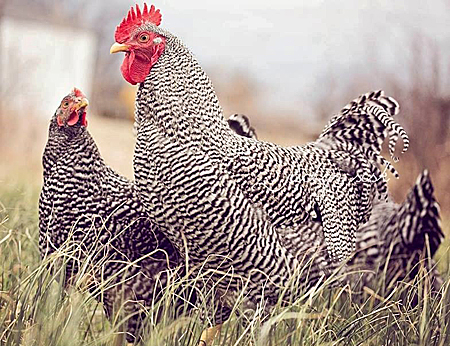
The pecking order governs the social organization of a flock of chickens, thereby reducing tension and stress in an established flock. Starting in the brooder, chicks spar almost from the day they hatch. By the time they are about six weeks old, each has established its place in the pecking order.
In general, roosters are at the top of the peck order, then hens, then cockerels, and finally pullets. As they mature, cockerels work their way up through the hens. Similarly, maturing pullets work their way up the ladder. Any new bird added to the flock must also work its way up, but won’t necessarily start at the bottom.
You can help your flock maintain a stable pecking order to reduce peck order stress in these 10 ways:
- Make sure your chickens have enough living space for the lowest-ranking birds to get away from those of higher rank.
- Include enough variety in your facilities to keep your chickens from getting bored and to provide places for the timid ones to hide.
- Furnish enough feeders and drinkers the flock size, so higher-ranking birds won’t keep away lower-ranking birds.
- If you have more than one rooster, provide one feeding station per rooster. Each will set up his own feeding territory with his group of hens.
- Position feeders and drinkers so no bird has to travel more than 10 feet to eat or drink, preferably without passing through another group’s territory.
- Don’t move chickens and combine birds from different groups at the same time, which increases the stresses of both moving and peck-order fighting.
- Avoid constantly introducing new chickens into your flock, which disrupts the peck order, causing stress that can lead to feather pulling, vent picking, and other forms of cannibalism.
- If you must integrate new birds into your flock, reduce bright lighting to make the unfamiliar birds less conspicuous.
- If your chickens fight constantly, look for management reasons, such as poor nutrition, insufficient floor space, or inadequate ventilation.
- Don’t cull a bird just because it is the lowest one in the pecking order — as long as you have at least two chickens, one will always be lowest in rank.
And that’s today’s news from the Cackle Coop.
Gail Damerow is the author of Storey’s Guide to Raising Chickens.

